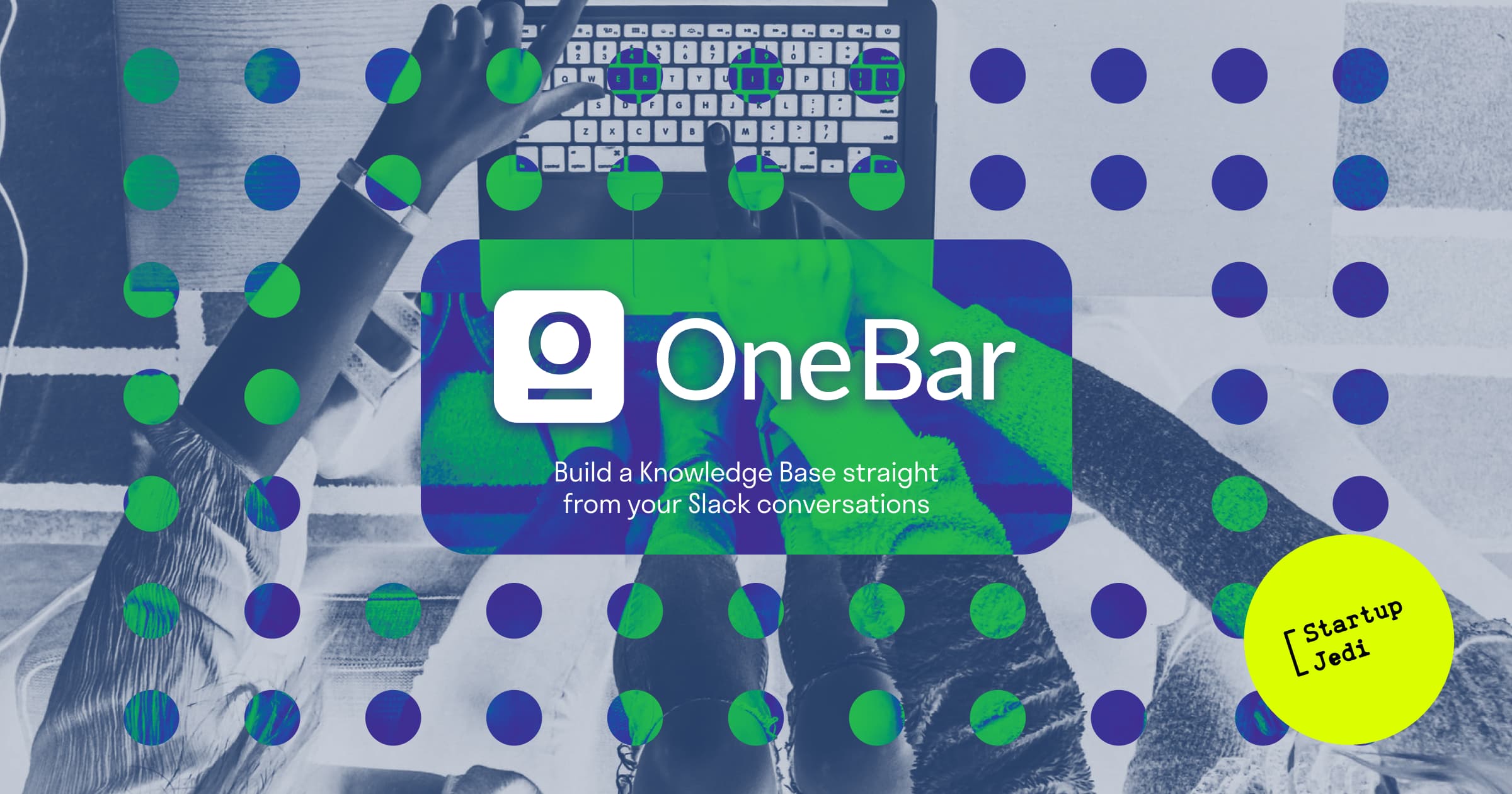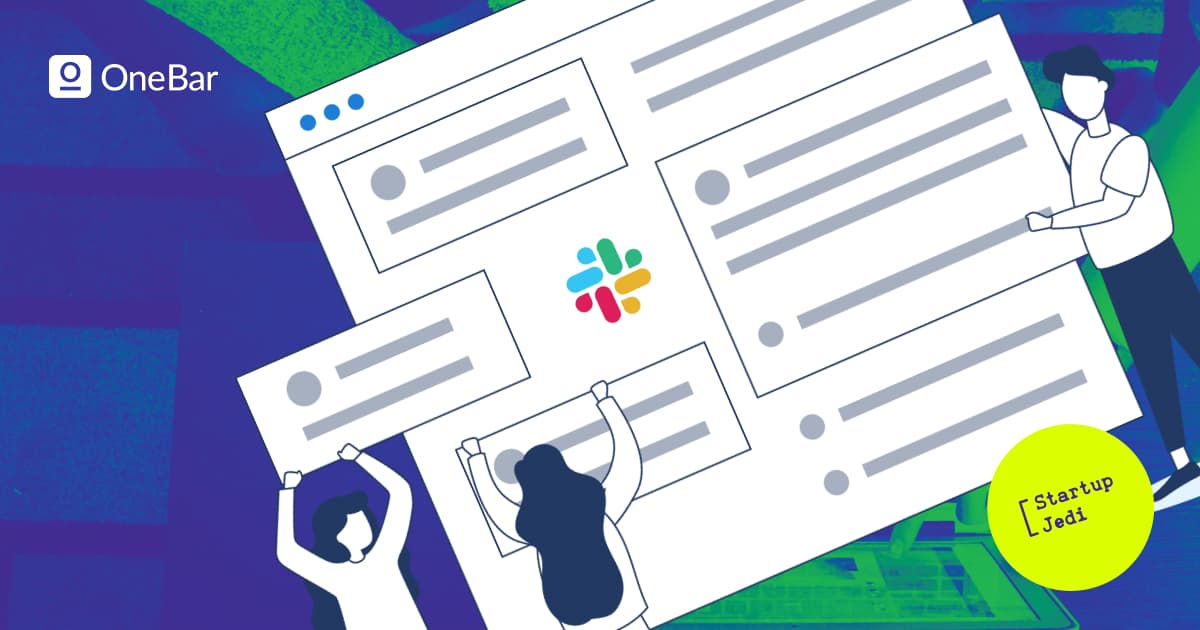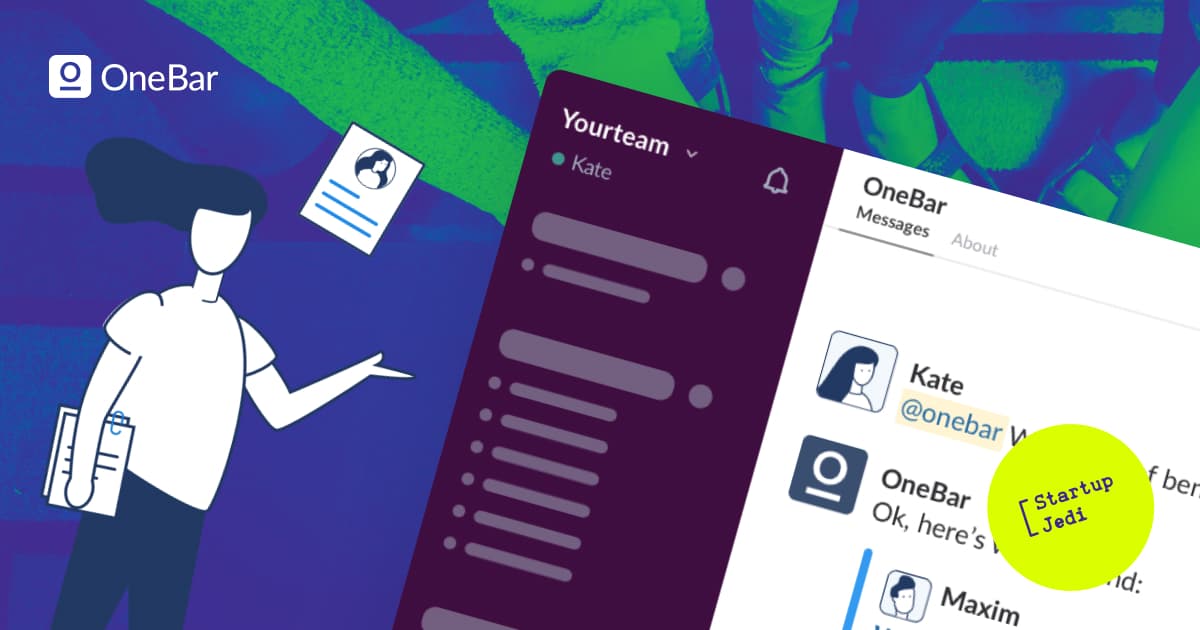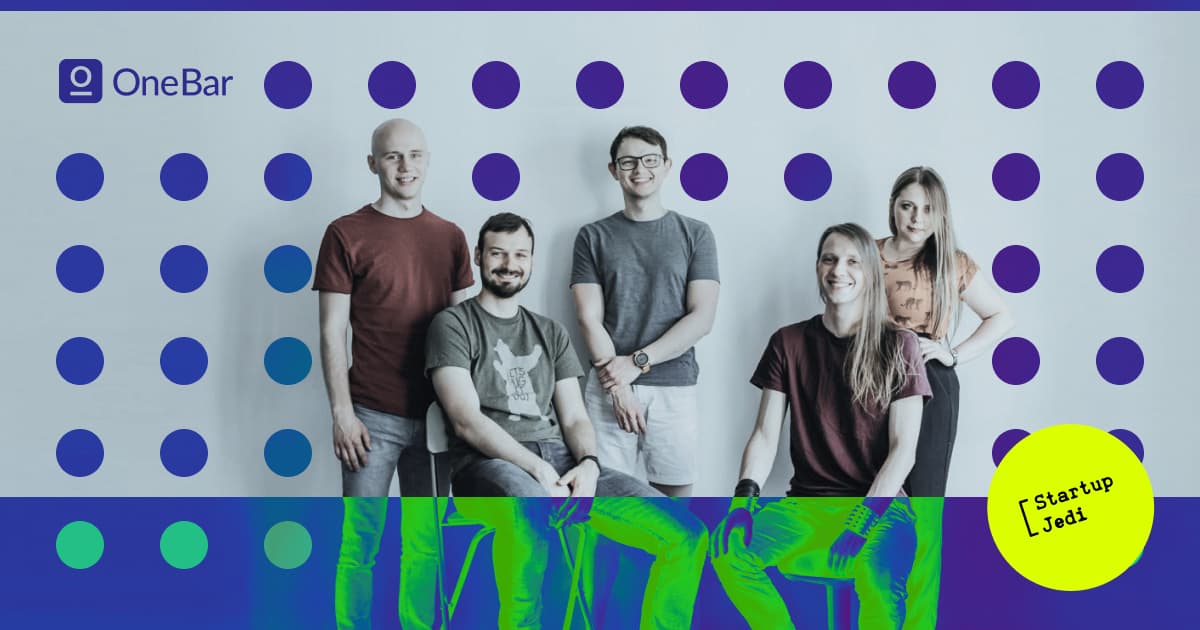
Startup Jedi
We talk to startups and investors, you get the value.
OneBar startup decided to solve an ambitious task: extract the valuable information from work chats and messengers, and provide an easy search of it. Some kind of an internal Q&A resource that is automatically supported in real-time.

Startup Jedi
We talk to startups and investors, you get the value.
Andrey Fan, the founder of OneBar, told us what is the most difficult in this job and how to build a search in unstructured data.
...
The majority of asked questions in work chats are not unique. Someone has already asked the same thing before, but it is difficult to manually find the important info in tons of messages. That’s why the process of answering the same questions takes a lot of working time.
OneBar Team creates a system that knows how to read chat conversations and extract structured information from them. As for now, they use Slack as an entry point, as it has an amazing API and bright prospects. But this system can also be applied to emails, MS Teams, Telegram or to any other messenger.
You can ask OneBar bot a question and it will set off to find an answer in the available data. In the working process, the bot gathers a database of questions and answers to answer promptly.
If in bot’s knowledge database there is no answer to the question, the user will receive a notification to save this question, so in the future somebody will answer it. Also, a question may be automatically sent to a team member who is potentially competent enough to answer the question.
...
Three years ago we started working on a browser for companies. The idea was like this: a company can connect to our product all its systems with the information that is necessary for employees. The product indexes this information and offers one searching tab for all systems.
We were doing it approximately for a year. We made it to the first prototype. However, after giving it a second thought, we decided to change the concept. That happened because we had faced two largest problems.
The first one — security issues. When you tell companies that we will index data and then start a search in it, many companies start to ask questions like: “Where will my data be stored? Is there any chance you will not index the data?
The second problem was connected to the quality of the searching task: it was way too hard to mastermind an algorithm for good quality search because of the unstructured data. Many products that were developed at that moment or are developing now, are trying to capture a potential client with nice pictures where a person’s search requests look like “Show me a presentation, find a meeting with this and that person which happened at this time and that place”. And the system kinda finds the information. But, in fact, I have never seen a solution that would really work this way.
These two problems made us look at the product from a different angle and start solving the problem of improving the availability of information in the company.
The majority of companies that develop circum-digital products or software use Slack. Every single day, a huge number of people discuss various things there, but there is no way to transfer all this to a structured base. Knowledge that could be potentially useful to other people in Slack is dying.
We communicated with some companies that had created an internal helpdesk in Skype. For example, if an employee has a problem with a computer, he writes in the special channel in Slack. On the other side, another employee transforms his request into a ticket for the corresponding company unit. No room for automation.
We started creating this automation. At first, we tried the search in all possible sources of information, like JIRA, Confluence, Github, Google Disc. OneBar can connect to them and find answers to the employee’s requests in this huge mass of unstructured information. We took this solution and launched on the Product Hunt for the first time, and we had 358 upvotes.
But in the process, we realized that important information, in any case, passes through people and it is worth looking for it in Slack. So this is how OneBar became a database that is automatically built using work conversations in Slack. A year after our first launch, this version of the app was ranked #2 among PH products of the day.
In the current third version we have improved the search, UI and added a few interesting features. After this launch, we won third place. Every product launch on Product hunt we dedicated to the occurrence of new functionalities, which hypothetically could give us Product-Market Fit.
For example, some of our users received the autoresponder well. We can configure the bot in a way that you don’t need to “call” it in a chat. It reads the conversation, and if it sees the question with an answer in the database, it answers by itself.
Others took a fancy of the slang support. If a company has their unique words, it is possible to download the info about them in OneBar and it will tell noobies what this or that word means.
...

The search still remains the most time-consuming part of the product. We constantly try something new, review new app-libraries and try to implement them. We look at how much the search has improved or worsened.
Technically, the embodiment of search is a very difficult task. There are many different approaches, algorithms and systems for its development. Each of these small systems solves some exact tasks perfectly. So, somehow we need to combine these small parts into one system to create a good search in the future. We want all these systems to work in tandem.
And of course, we have another trouble — the lack of data. You need to have a large amount of data to teach and train neural networks. Also, it should be more or less target data. For example, conversations from our clients that allow training our systems using their data — it is a great thing. It is hard to find such data on open access.
We have a dozen of such clients. They have a real problem, which we’re starting to solve step-by-step. They see that OneBat really helps them to improve working processes, so they give us access to their team conversations.
...
The first version was launched with the fully free beta-access, while the paid subscription was offered when a user had more than 100 documents in the OneBar database.
We stopped using this system as the period of collecting one hundred documents appeared to be way too long.
People have been using our app for free, I guess, for two months. It is bad not only because we didn’t receive any money. It is also bad because you had to wait for quite too long to understand whether a person would want to pay for our service.
Now, we moved to a trial version with a limited period. For 21 days, you can use our product for free, and then you should start paying if you want to add new information.
This type of monetization is more efficient. We noticed that companies, which created 20–30 questions in 3 weeks, understood what the value of OneBar is. So, they started paying after 2–3 weeks after registration.
...

Many companies create solutions that partially cover the functionality of our product. For instance, in the field of helpdesk automation, there are clear leaders, and there are such in other niches too. (ServiceNow, Axios, BMC Software and other big players — Startup Jedi tacking. Source.)
These are big products with a lengthy implementation cycle. We give a possibility to quickly improve a specific aspect of the working process. Few startups use the same approach. KipWise, which is registered in Estonia, calls itself a direct alternative to OneBar in advertising.
...
We participated in this program two years ago and we haven’t noticed any big minuses. After work at school, we reconsidered the concept of our product and found a new vector for development.
The program allows you to plan the time flexibly and it is easy to build-in your schedule. You fill in the application in one day max and wait until they contact you. Then we divided into groups and then we were assigned a mentor from YC graduates.
In groups, we agreed on weekly meetings, and we discussed plans for the next week and results of the past week there. This is like additional control and motivation for teams that found it difficult to concentrate. This thing was super useful, as well as excellent School lectures that you can watch online or go to the audience at Stanford and listen, ask questions or talk with the lecturer.
Another super awesome thing — bonuses for students from large companies. Thanks to them, we used AWS for free all year.
...
We have a small team in Minsk; the product is developed by four devs. Maksim Leonovich, my co-founder, is currently working on the OneBar promotion in the Valley.
It has been 7 years now that we are working in outsource development. One of our products, “1C for artworks”, was bought by Christie’s auction house.

Currently, we have around 10 paying clients. Among them, there are both large companies with many employees and medium-sized companies. We still haven’t made it to the revenue but we have a confident growth.
A year ago, we didn’t plan to attract investments as we were searching Product Market Fit and testing hypotheses. Now, we changed our mind. We have reached a specific level, and we understood that if we had more resources, then things would have gone much faster. Recently, we have received some minor financing; it should give the team some time to prepare for the more serious round.
Facebook: facebook.com/StartupJedi/
Telegram: t.me/Startup_Jedi
Twitter: twitter.com/startup_jedi
Comments